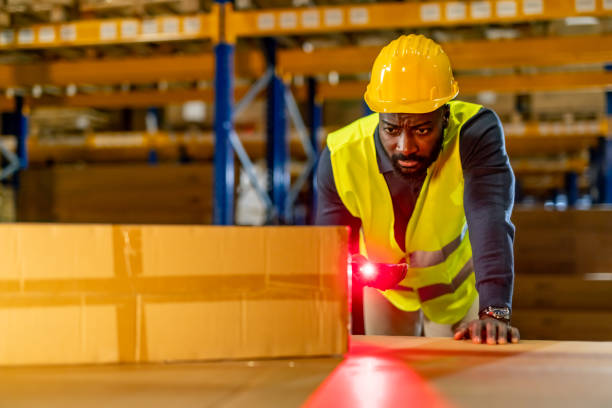In modern industrial production and management, barcode technology has become an indispensable and important component. Against this background, the industrial barcode scanner, as an efficient data collection device, is playing an increasingly vital role. This article will explore the functions and applications of the industrial barcode scanner to help you better understand its importance across various industries.
Fast Identification and Data Processing
The industrial barcode scanner can quickly identify barcodes or QR codes and convert them into digital information. This process typically takes only a few seconds, greatly enhancing work efficiency. For example, on a production line, workers only need to scan the barcode on a product to complete data entry, significantly reducing manual recording time.
Improved Accuracy
Mistakes are to be avoided in any business process, and the use of an industrial barcode scanner can significantly reduce human error. Thanks to automatic identification technology, the scanner captures data accurately and reliably, minimizing errors that may occur during manual entry. This benefit is especially critical in logistics and warehouse management, where accurate inventory data is essential for a smooth supply chain.
Data Synchronization and Real-time Updates
Modern industrial barcode scanner models are often equipped with wireless capabilities, enabling real-time synchronization with enterprise management systems. This means that inventory updates happen instantly, allowing for more accurate purchasing and sales planning, and optimized production scheduling—particularly important in fast-changing markets.
Compatibility with Various Barcode Formats
The industrial barcode reader supports both one-dimensional and two-dimensional barcodes. This versatility allows it to be used across a wide range of scenarios, increasing its value and adaptability.

Warehouse and Logistics Management
In warehousing and logistics operations, the industrial barcode scanner is widely used during receiving, dispatch, and inventory counting. By scanning package barcodes, staff can quickly retrieve product information and update inventory data in real time. During transportation, scan records enable real-time tracking of shipment status, improving logistics transparency and accountability.

Production Line Monitoring
In manufacturing, the industrial barcode scanner helps production managers monitor the entire production process. By collecting data at each stage, management gains real-time insights into production progress, safety, and equipment status—allowing timely adjustments and minimizing resource waste.
Retail Industry
With the rise of e-commerce, traditional retail is also evolving. The use of the industrial barcode scanner in retail helps streamline inventory management and speeds up the checkout process. Customers can simply scan product barcodes at checkout, making transactions quicker and improving the overall shopping experience.
Healthcare Industry
In the healthcare field, the industrial barcode scanner is used in various aspects such as medication management and medical record-keeping. By scanning a medication’s barcode, medical staff can quickly retrieve detailed drug information, ensuring patient safety. Likewise, using the scanner for medical records helps standardize data entry and improves traceability.